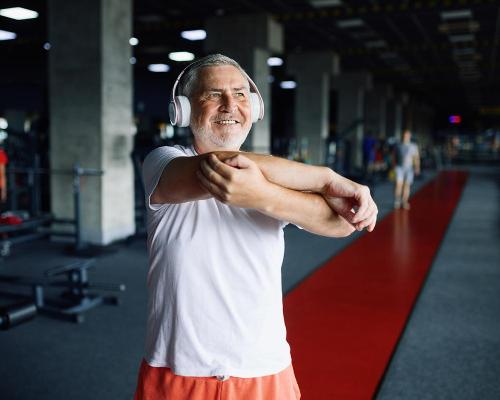21 Jan 2022
Four hours exercise a week can slow down development of Parkinson's
BY Tom Walker

People with early-stage Parkinson’s should do regular exercise to slow down the progression of the disease.
The finding comes from a six-year study that followed 237 people who were developing Parkinson’s.
The participants in the study had an average age of 63. Their exercise levels at the start of the study were determined using a questionnaire, while their verbal and memory skills – and how much time it took to complete mental tasks – was assessed using common cognitive tests.
People who got at least four hours of moderate-to-vigorous exercise a week, like walking or dancing had a slower decline in balancing and walking five years later, compared to those who were physically inactive.
Researchers used a common test to rate each person’s Parkinson’s symptoms on a scale of zero to four, with higher scores indicating more severe impairment.
People who got below-average levels of moderate to vigorous exercise – or less than one to two hours, once or twice a week – increased from an average score of 1.4 to 3.7 over six years.
Those who got above-average levels of moderate to vigorous exercise increased from a score of 1.4 to 3.0 during that time.
Crucially, researchers found that people’s physical activity level at the start of the study was not associated with the progression of their Parkinson’s later on.
Instead, they found it was more important to maintain physical activity over time.
Study author Kazuto Tsukita, of Kyoto University in Japan, said the findings were encouraging.
“Our results are exciting because they suggest it may never be too late for someone with Parkinson’s to start an exercise programme to improve the course of their disease,” Tsukita said.
“We found that, to slow progression of the disease, it was more important for people with Parkinson’s to maintain an exercise programme than it was to be active at the beginning of the disease.
“Although medications can provide people with Parkinson’s some symptom relief, they haven’t been shown to slow the progression of the disease.
“We found that regular physical activity, including household tasks and moderate exercise, may actually improve the course of the disease over the long run. Best of all, exercise is low cost and has few side effects.”
The research was published in the January issue of Neurology, the medical journal of the American Academy of Neurology. To access the full report, click here.
Close Window